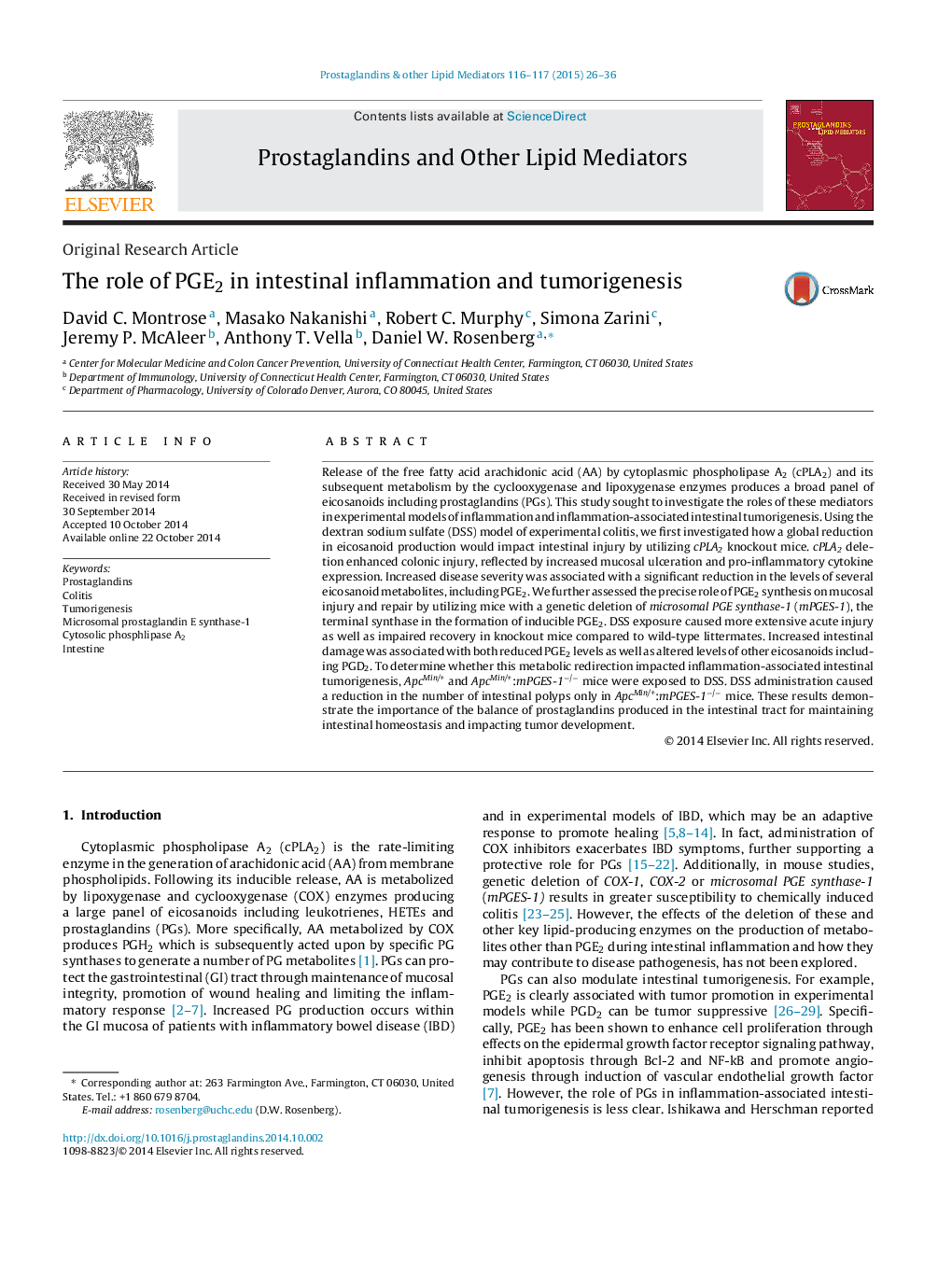| Article ID | Journal | Published Year | Pages | File Type |
|---|---|---|---|---|
| 2019612 | Prostaglandins & Other Lipid Mediators | 2015 | 11 Pages |
•Genetic deletion of cPLA2 resulted in more severe acute murine experimental colitis.•cPLA2−/− mice have reduced levels of eicosanoids as compared to wild-type mice.•Loss of mPGES-1 in mice resulted in more severe colitis and impaired recovery.•mPGES-1−/− mice have altered eicosanoid levels compared to wild-types.•DSS administration to APCMin/+; mPGES-1−/− mice reduced intestinal tumor burden.
Release of the free fatty acid arachidonic acid (AA) by cytoplasmic phospholipase A2 (cPLA2) and its subsequent metabolism by the cyclooxygenase and lipoxygenase enzymes produces a broad panel of eicosanoids including prostaglandins (PGs). This study sought to investigate the roles of these mediators in experimental models of inflammation and inflammation-associated intestinal tumorigenesis. Using the dextran sodium sulfate (DSS) model of experimental colitis, we first investigated how a global reduction in eicosanoid production would impact intestinal injury by utilizing cPLA2 knockout mice. cPLA2 deletion enhanced colonic injury, reflected by increased mucosal ulceration and pro-inflammatory cytokine expression. Increased disease severity was associated with a significant reduction in the levels of several eicosanoid metabolites, including PGE2. We further assessed the precise role of PGE2 synthesis on mucosal injury and repair by utilizing mice with a genetic deletion of microsomal PGE synthase-1 (mPGES-1), the terminal synthase in the formation of inducible PGE2. DSS exposure caused more extensive acute injury as well as impaired recovery in knockout mice compared to wild-type littermates. Increased intestinal damage was associated with both reduced PGE2 levels as well as altered levels of other eicosanoids including PGD2. To determine whether this metabolic redirection impacted inflammation-associated intestinal tumorigenesis, ApcMin/+ and ApcMin/+:mPGES-1−/− mice were exposed to DSS. DSS administration caused a reduction in the number of intestinal polyps only in ApcMin/+:mPGES-1−/− mice. These results demonstrate the importance of the balance of prostaglandins produced in the intestinal tract for maintaining intestinal homeostasis and impacting tumor development.
